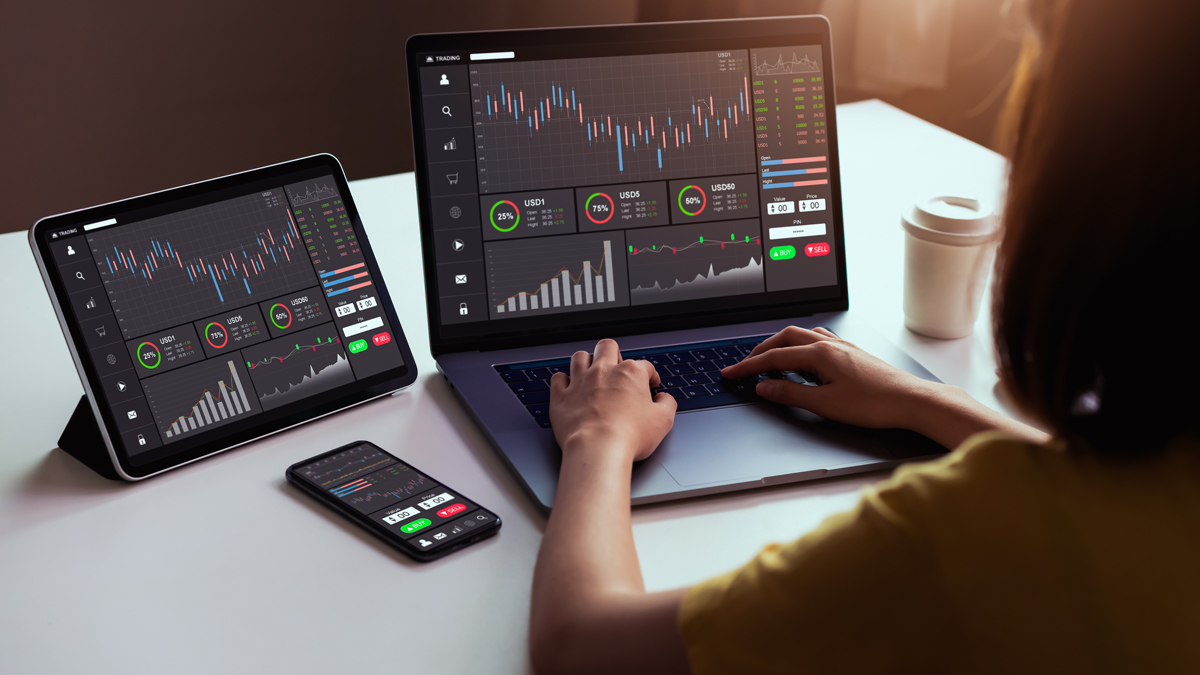
Practice makes perfect: a rule that applies to almost everything in life. However, the way you practice certainly makes all the difference in the world. Most amateur traders believe that they can become “perfect” at trading if they just keep logging in the hours, but that’s just not true.
Trading is all about working smart not hard. You need to put in conscious effort to grow your skills and play smarter, only then will you get better at trading. Luckily though, you don’t have to reinvent the wheel to get better at trading. We’ve compiled a few expert-backed tips to help you maximize your trading profit. Here’s how you can level up your game.
Never Move Without a Plan
One of the worst mistakes you can make is to start trading without a plan. You need to have a game plan that specifies your entry and exit points, your money management strategy, and the criteria for every purchase you make. All of these points are typically included in a trading plan that you come up with after carefully devising your strategy. Thankfully, it’s easier than ever to test trading ideas nowadays before using real money to trade. Keep in mind that your plan may very possibly fail you; just bail out and start with a new plan. Over time, you’ll learn how to develop methodologies by analyzing data and facts rather than relying on instincts or emotions.
Take Advantage of Technology
Technology is going to be your best friend in the trading game. Trading has become an extremely competitive business, and using the right tools is crucial for maximizing your profits and minimizing your losses. Out of all the tools you’ll need, a good and suitable online platform is the most important. In his IQ Option review, Ziga Breznik explains how an award-winning platform covers all the set of features that amateur and veteran traders alike would need. The platform should provide technical analysis tools, market updates, economic calendars, multi-chart layouts, as well as multiple investment options.
Develop a Business Mindset
You should always approach trading with a business mindset. You should never start trading thinking of it as a mere hobby or treat it like any other office job. Trading is your business; you’re investing your own money into it, so better take full accountability.
Otherwise, you’ll never be fully committed to learning or making the wins you could be doing. Once you start thinking of it as your own business, you’ll start making plans, calculate taxes, and assess risks. That will also help you keep focused on the bigger picture instead of running after instant profits.
Maintain Your Role as a Student
The road of trading is long and ever-changing. You’ll need to log in a lot of hours so you can finally get the hang of it, and you’ll have to keep experimenting so you can get smarter and better. Thinking that you’ve gained enough skills is a recipe for surefire losses; rather, you should always approach trading as you would continue education. The market keeps changing every day, new technologies are introduced, and more effective strategies are devised. If you stop looking for more, you’ll soon be left behind.
Protect Your Capital
Always be strategic in your trades. If the money you’re about to trade is not dispensable, then you certainly shouldn’t be using it to trade. It takes a lot of time and effort to fully fund a trading account, so you don’t want a thoughtless mistake to force you into having to fund the account for a second time. There will be trades where you’ll lose; that’s normal. What’s important is to never take risks you can’t afford, all while doing everything you can to protect the capital you currently have.
Learn How to Control Your Losses
Like we’ve mentioned, it’s normal for all traders to lose once in a while – even the veterans suffer losses. That doesn’t mean that you shouldn’t mind these losses. A smart trader will have a stop loss in place to control their losses. A stop loss is the amount of risk you’re willing to suffer before calling quits for the day. A smart trader also knows when it’s time to stop trading, whether it’s due to having an ineffective strategy or because their skills just aren’t good enough.
Trading is an exciting activity, but it certainly isn’t for everyone. To become good at trading, you’ll need to build enough experience, suffer from enough losses, and do enough experimentation until you’re good enough to make a living out of it. That’s why looking for expert advice to help throughout your journey is crucial to guide you in the right direction.




